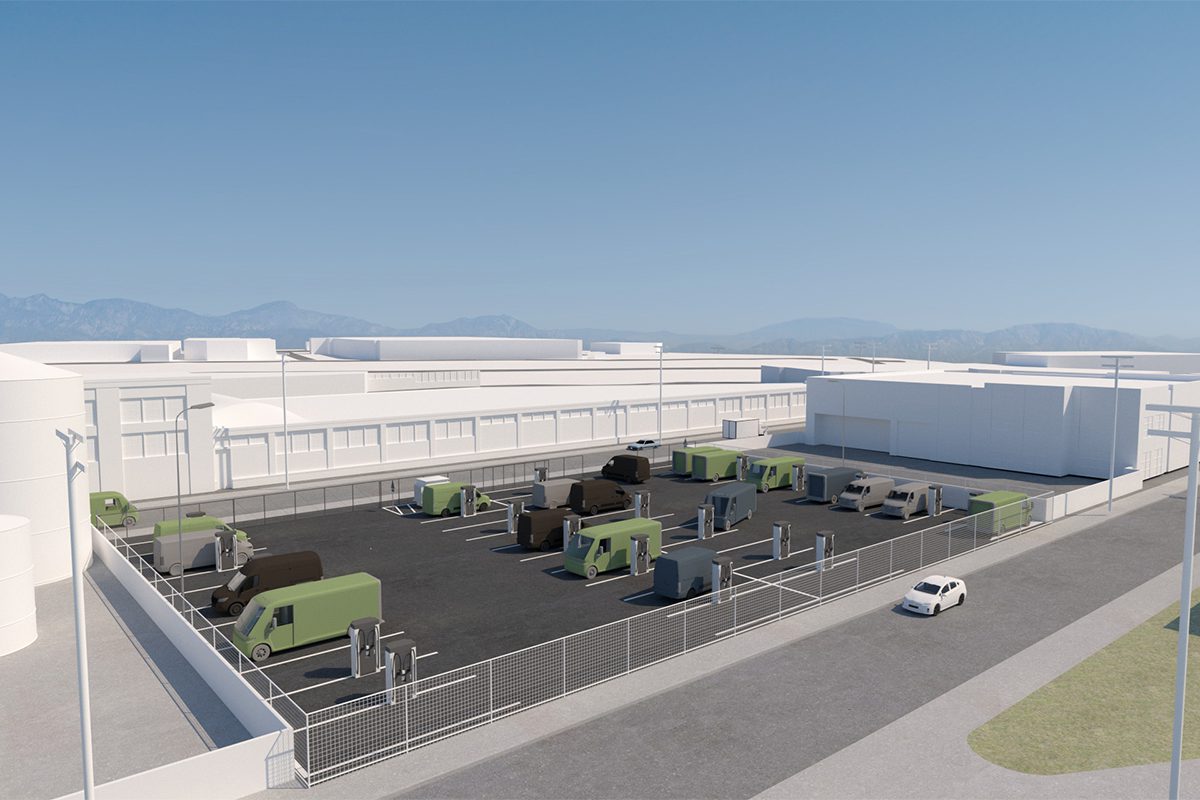Electric vehicles (EVs) have staked a solid claim in the clean vehicle tech sector, and fleets are taking notice. While the technology is not yet ready for long-haul carriers, it is giving fleets with recurring daily routes the ability to quickly cut emissions and costs. Last-mile delivery, school bus, and some food and beverage fleets share a common routine — routes that takes them out first thing in the morning and back to their depots at the end of the day.
After overcoming the first hurdle in electrifying a fleet, many companies begin to tackle the second (arguably, the most important) hurdle — developing onsite infrastructure. It can be a lengthy process, as well as an expensive one, and it can stop some EV projects in their tracks.
Financing EV infrastructure has become easier in the current environment, as the feds have opened historical levels of funding for projects aimed at promoting zero-emission vehicle adoption. But it is not as easy registering a vehicle — funding applications are a lengthy process that require intimate knowledge of not only your fleet, but any current local, state, or federal requirements related to your transportation sector. For example, school bus fleets are highly regulated on not only a federal level, but at the state level as well, in terms safety, permitting, vehicle, type of equipment, and more. In addition, fleet users may be unable or unwilling to make significant investment in infrastructure on leased properties, and conversely, landlord’s may not view the investment in infrastructure as a value-add to their property. The combination of private enterprise’s goals to reduce greenhouse gas emissions, as well as state and federal mandates to make the transition have put fleets in a challenging position.
Reduced Charges, Secure Spaces
Axis Electrified Solutions (AES) is a real estate investment and development company that is currently developing off-site charging depots that will allow fleets to charge their EVs overnight in a secure lot, ready for the next morning’s routes. Drivers simply perform their duties with EVs that have enough range to complete their daily routes and then drop off the vehicles to be charged, whether they be school buses, last-mile delivery vehicles, or medium-duty food and beverage box trucks. AES will lease its properties in a typical triple-net commercial real estate lease structure, with their fleet tenant paying for their electricity consumption directly with the utility company.
AES is currently building its first site in Vernon, California, located just a half mile from the 710 freeway, a major freight corridor coming out of the Ports of Los Angeles and Long Beach and home to numerous distribution centers. Opening at the beginning of 2024, the site will have enough spaces for 42 medium-duty vehicles, which will include 34 level 2 chargers and 8 level 3 DC fast chargers. Fleet customers will benefit from the area’s reduced utility rates, which on average are approximately 8-10% lower than neighboring utility rates. In addition, AES is planning to deliver a site in early 2025 in Newark, New Jersey, with charging and storage for 62 commercial EVs. The sites will be gated and have 24-hour security to ensure that all vehicles parked onsite are safe from vandalism or theft.
AES also recently entered into a partnership with Moxion Power to acquire and build the company’s Energy Services Locations throughout the U.S. These sites will serve as Moxion’s regional rental centers, as well as charging depots for their mobile power units.
Making the move to EVs can be a complicated journey, which is why is it helpful to have a partner to relieve some of the stresses along the way. For more information on Axis Electrified Solutions and Axis IOS, visit AxisElectrified.com.


